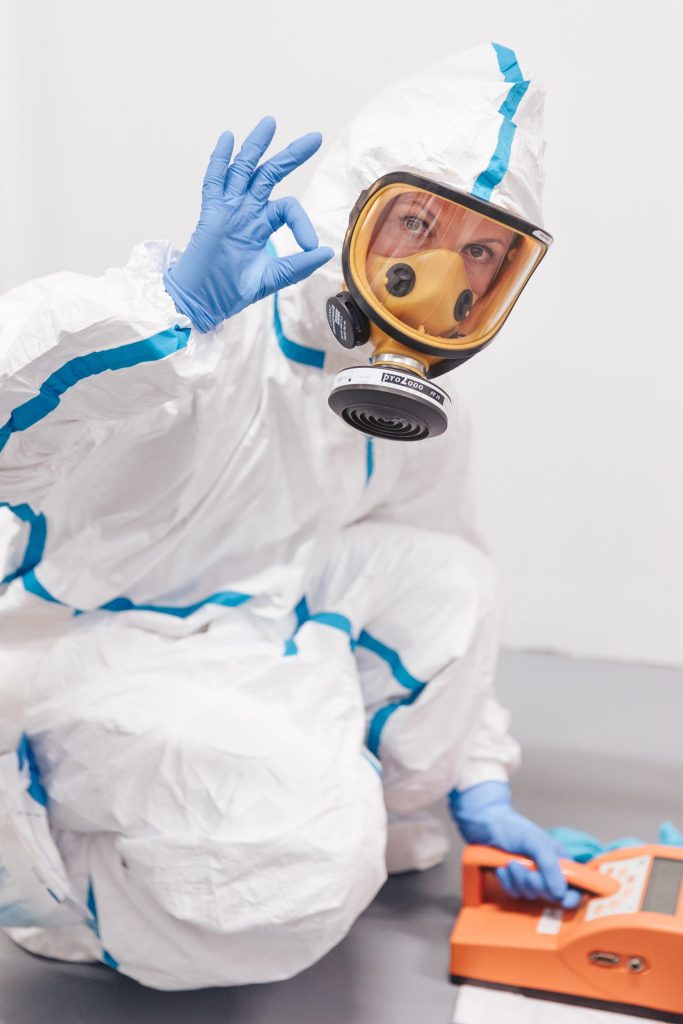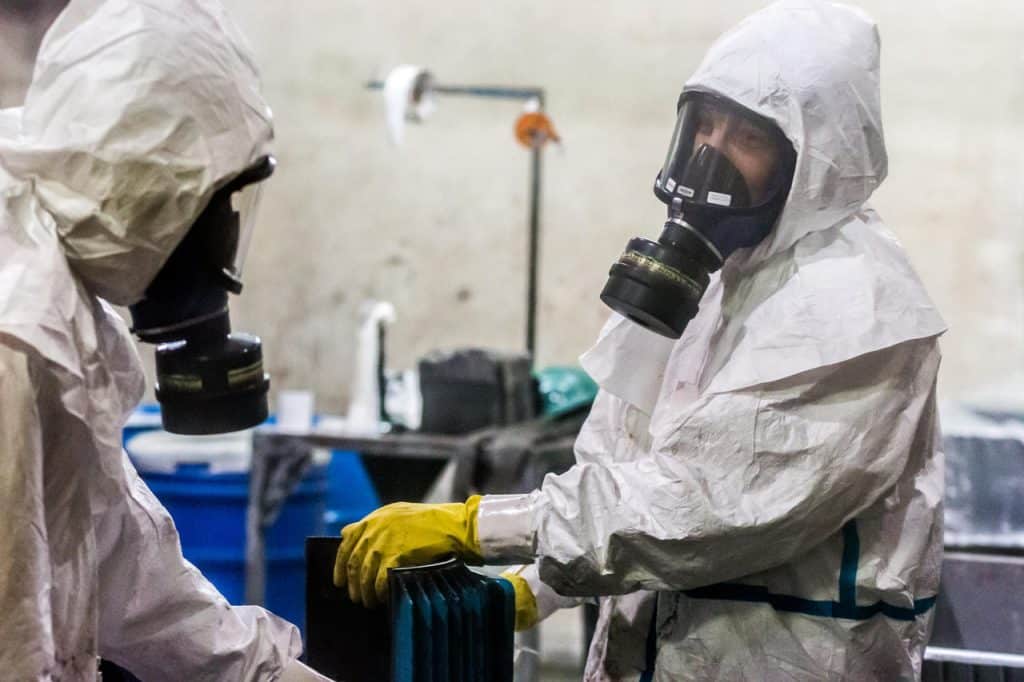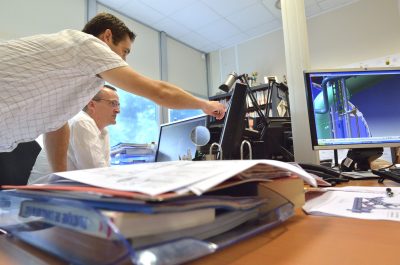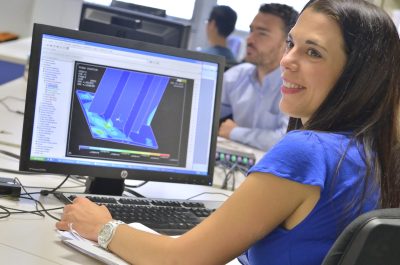Home / Join us / Operational / Radiation protection technician - Job description
Radiation Protection Technician
What is the the role of a radiation protection technician? What are the missions ? What are the skills required ? Find all the answers to these questions in this job description designed exclusively for the profession of radiation protection technician!

I carry out dosimetry measurements in ionizing environments and mapping on nuclear sites. These measurements help to define the risks that may be present in the various work areas.
What is the role of a radiation protection technician?
A radiation protection technician is a professional specializing in the monitoring of exposure to ionizing radiation. Their main mission is toensure the safety of individuals and the environment, where radiation sources are used. Generally under the supervision of an engineering manager, the radiation protection technician analyzes the various risks. To this end, the radiation protection expert is rigorous in avoiding all risks of radiological contamination of premises and visitors, while complying with radiation protection procedures. Radiation protection technicians can be deployed at various sites: Nuclear power plants (CNPE), research laboratories or specialized companies.
Why work in radiation protection?
Working in nuclear radiation protection is essential not only to ensure the safety of facilities, but also to protect public health and the environment. By guaranteeing rigorous control of ionizing radiation, this profession helps to reduce the risks associated with nuclear energy, enabling companies in the sector to comply with the strictest safety regulations and ensure business continuity in a number of sectors.
My duties and responsibilities
as a Radiation Protection Technician
- I carry out daily measurement checks in areas where I work on nuclear sites.
- I implement corrective actions following non-compliance with the rules
- I am able to check the conformity of measuring equipment and set up monitoring devices on worksites.
Marina BANOS
Radiation protection technician
Marina joined Onet Technologies as an operator, completed her training and progressed internally to become a Radiation Protection Technician at the CEA CESTA site.
My manager's vision by Onet
My core competencies
Know-how
Produce radiological maps (contamination/irradiation).
Remind workers of the site's radiation protection rules and developments
Carry out daily measurement checks on intervention areas
Monitor the proper operation of equipment already in the work area
Valid PNR, PR1 CC or PR1 CR authorizations
Ideally with a BAC or BAC+2 in HSE with specialization in radiation protection.
Know-how
- Communicates with ease
- Respecting the rules
- Professional awareness
- Shared vigilance
- Transparency

The advantages of my job
Versatility : my missions are very varied
Diversity of teams,
Human : closeness to my teams and customers
How do Ibecome a radiation protection technician?
Specific training is essential to prepare you to manage the risks associated with ionizing radiation in a variety of professional environments, including nuclear power plants. Being a radiation protection technician requires solid skills in radiation physics, radiation protection regulations, and measurement and control techniques. These skills will enable you to use measuring equipment to control ionizing radiation and prevent contamination of premises. This profession also requires an understanding of radiation protection procedures and radiological risks, to guarantee the safety of those working on site. Several specialized diplomas are available to help you acquire these skills and launch your career in this field.
Which diploma would enable me to become a radiation protection technician?
- Bac level
- Vocational baccalaureate in nuclear installation intervention techniques
- Bac +2 level - BTS
- BTS in nuclear environment
- BTS in electrical engineering
- BTS in fluids, energy and the environment (FEE)
In short, to become a radiation protection technician, several training courses are available, ranging from the Bac professionnel to the BTS.
My career prospects
- Team leader through evolution in the intervention sector
I'm applying!
Job offers - Radiation protection technician






